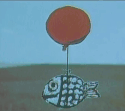|
feedmegin posted:I think they actually do dont they? Something about which direction the prop spins. Technically yes, they do, but the effect was far more pronounced in WWI fighters with rotary radial engines, due to the relatively huge rotating mass.
|
|
|
|

|
| # ? Apr 29, 2024 04:43 |
|
The 'official' attack profiles that Chennault laid down for the American Volunteer Group called for attacks from the rear (on both bombers and fighters) but also from the target's right in both cases. In a typical aircraft with a right-turning prop, it will roll more readily to the left although as MrYenko says this was not all that pronounced on WW2 aircraft and was most dramatic during increases of power and at low speeds - it was known for inexperienced pilots to open the throttle to much/too fast when doing a go-around at low speeds and altitudes and the torque reaction overpowering the control surfaces and rolling the plane into the ground. But it was a factor appreciated by pilots; Fw190 pilots knew that the Griffon-engined Spitfires had props that went the other way round to theirs, and so (combined with the 190's excellent roll rate in any case) they stood a better chance of out-turning the Spitfire going left than going right. Not that that has any direct relevance to attacking bombers. And the AVG's instructions were to approach from below at a 20-degree angle to the target's course, pull up towards the bomber's belly to fire, roll inverted at the end of the attack (to present the self-sealing fuel tank, armour plated seat and the pilot's parachute to the defensive fire) and dive away in the direction they had come from. The only roll was to get inverted, not to maneouver away. And with the AVG attacking from behind and the Luftwaffe attacking from the front, they'd want to roll in different directions in any case. Intriguing.
|
|
|
|
The roll (and apparently pilot impulse) is part of why carriers ended up with the island on the right I have a suspicion that the prevalence of right handedness means that there's an inclination to push the stick to the left as well
|
|
|
|
This series is actually cool and good, not least because Johnny Cash plays John Brown 
|
|
|
|
Gnoman posted:Did fighters roll better in one direction than the other? A preference to attack the right sight might be a "easier to roll and break off after firing" thing. I would have guessed the most likely explanation is about the position of the sun at the times and places many attacks take place.
|
|
|
|
Tias posted:This series is actually cool and good, not least because Johnny Cash plays John Brown Good lord, what? Like Bruce Campbell as Ronald Reagan I only want John Brown played by Johnny Cash
|
|
|
|
Nebakenezzer posted:Good lord, what? Here he is. https://www.youtube.com/watch?v=T1Vwqyr4stM
|
|
|
|
Video uploader posted:Never has the misguided fanatic been so passionately portrayed and brought to real-life. Video commenter posted:I'm a Kansan, and a staunch supporter of John Brown's ideals. But he obviously was a fanatic, because he murdered innocent people in Kansas who happened to support slavery. 
|
|
|
|
People who read YouTube comment sections without Herp Derp maybe don’t deserve what they get but they surely do get it.
|
|
|
|
We mentioned Quartered Safe Over Here by the Flashman guy right? Because after his describing his literal bloodlust in shooting fleeing Japanese soldiers and how its not PC to talk about it these days I just read this - 'And then suddenly pointing, as he reloaded, to a fallen figure and shouting: “Git that booger – he’s nobbut wounded!” There are many grey areas around the Geneva convention, I suppose: I know a sergeant from another platoon at one stage yelled: “Ower theer! They’re gittin’ the wounded away!” and directed a Bren gun accordingly. ' Bloody hell GMF Edit: oh yeah one of his section mates had volunteered in Spain - for the Nationalists (!) Edit edit: 'It may appal a generation who have been dragooned into considering racism the ultimate crime, but I believe there was a feeling (there was in me) that the Jap was farther down the human scale than the European' feedmegin fucked around with this message at 01:56 on Jul 3, 2021 |
|
|
feedmegin posted:We mentioned Quartered Safe Over Here by the Flashman guy right? Because after his describing his literal bloodlust in shooting fleeing Japanese soldiers and how its not PC to talk about it these days I just read this - It was a different time, way back in *checks notes* 1993. Well, at least I now know I do not want to read this book.
|
|
|
|
|
I think I'm going to pick it up just because it's so open about that sort of stuff as a sort of look into that mindset.
|
|
|
|
Certainly his thoughts on the bomb at the end are quite interesting considering his history on and imminent return to the front lines.
|
|
|
|
Arbite posted:Certainly his thoughts on the bomb at the end are quite interesting considering his history on and imminent return to the front lines. If asked to chose between "terrible things happen to Japanese cities" and "I have to go back out in the loving jungle" I'm picking the one where I don't have to go back out in the loving jungle.
|
|
|
|
Given that one of the backup options if Trinity had been a fizzle was going to be dousing the Japanese Home Islands with Sulfur Mustard and Hydrogen Cyanide, which probably would've killed five million people, the bombs were a *humane* option by comparison. https://www.opendemocracy.net/en/byanymeansnecessary_2727jsp/ https://www.deseret.com/1994/8/4/19123411/nerve-gas-did-a-bomb-preclude-its-use-in-world-war-ii
|
|
|
|
Jobbo_Fett posted:Attempts were made by He-177's (and I think He-111s iirc) to bomb factory production in the Urals, but these were few and far between, firstly because targets were far enough away to minimize bomb loads, and secondly because losses from such strikes increased as the VVS increased its capabilities. Thank you! Do you have any specific figures for damages and losses?
|
|
|
|
Yeah I actually dont really disagree with him on the Bomb specifically. The final bit though reflecting on the 50th anniversary of VJ Day was something like 'Britain regrets the sad loss of its empire, inevitable though it was and reflects with pride on the last 250 years of history and the good it did'. Hey dude. I'm British, I was around then, don't you dare tell me what I think. People who talk about any country, Britain, France or the Deutches Volk as a hivemind like that tend to be the toothbrush moustache and Hugo Boss uniform enthusiasts. If you can get past that stuff it is a really interesting read in terms of actual history, it's just every dozen pages or so he'll go into a little rant that makes you think you're down the boozer with your racist UKIP-member uncle. feedmegin fucked around with this message at 20:02 on Jul 3, 2021 |
|
|
|
BIG HEADLINE posted:Given that one of the backup options if Trinity had been a fizzle was going to be dousing the Japanese Home Islands with Sulfur Mustard and Hydrogen Cyanide, which probably would've killed five million people, the bombs were a *humane* option by comparison. These were all methods of killing people you loon. There's no such thing as a humane bomb.
|
|
|
|
The atomic bombs were the best option of a series of bad ones. Invading Japan, blockading Japan into surrender, chemical/biological attack, regardless a ton of people were going to die. The Bombs killed a ton of people, but combined with the shock of the Soviet invasion, it finally got through to the Japanese that the Americans would murder millions of Japanese and make peace on a blasted nuclear wasteland, sitting atop a throne of skulls before they accepted conditional surrender.
|
|
|
|
A Festivus Miracle posted:The atomic bombs were the best option of a series of bad ones. Invading Japan, blockading Japan into surrender, chemical/biological attack, regardless a ton of people were going to die. The Bombs killed a ton of people, but combined with the shock of the Soviet invasion, it finally got through to the Japanese that the Americans would murder millions of Japanese and make peace on a blasted nuclear wasteland, sitting atop a throne of skulls before they accepted conditional surrender. I've been to the hospital caves at Haebaru in Okinawa, I've been to Hiroshima. Between the two, I have a hard time imagining what was 'best' about either of those situations extrapolated in scale to encompass the entire scope of the country. That's a lot of weight to throw around in a statement without elaboration, and the 'throne of skulls' thing is kind of cringe, to be frank. Whether or not there was a 'better' way to end the war is pure speculation, but if I'm going to buy the notion that the atomic bombs were 'best' then I'd at least like to see a better picture of the alternatives. The 'humanitarian bomb' thing is cliché as hell. Effective-Disorder fucked around with this message at 00:01 on Jul 4, 2021 |
|
|
|
Effective-Disorder posted:I've been to the hospital caves at Haebaru in Okinawa, I've been to Hiroshima. Between the two, I have a hard time imagining what was 'best' about either of those situations extrapolated in scale to encompass the entire scope of the country. That's a lot of weight to throw around in a statement without elaboration, and the 'throne of skulls' thing is kind of cringe, to be frank. Whether or not there was a 'better' way to end the war is pure speculation, but if I'm going to buy the notion that the atomic bombs were 'best' then I'd at least like to see a better picture of the alternatives. The 'humanitarian bomb' thing is cliché as hell. The exact causes of the Japanese surrender are never going to be known given the loss of many of the papers and the fact that everyone involved had a long history of being dishonest even with each other about what they were doing and why (which isn't just a point about history, I think it's important to note that the Allies contemporaneously had no idea what was going on other than that the Japanese were making some very unrealistic overtures via the Soviets). I think two things can be agreed as reasonable plausible for whatever the counterfactual: 1) The alternative path to Japanese surrender (assuming they don't surrender on the same date anyway, which as above the Allies have no way of knowing) probably involves hundreds of thousands of Japanese deaths through bombing and starvation. If nothing else the winter of 1945 is going to see a famine in Japan that without Allied aid efforts will absolutely lead to mass death. 2) Every day the way goes on thousands of victims of the Japanese empire are dying. That's troops in the field, prisoners of war being subject to horrific mistreatment, and the millions of civilians in Japan's occupied territories who are being murdered, starved, etc. Those people aren't obliged to die in a prolonged war just because the Japanese government knows it has lost but has devastatingly miscalculated that it can withstand the pain of losing more that the Allies are willing to withstand the pain of winning.
|
|
|
|
Thats assuming a blockade when the actual plan was Operation Downfall, the amphibious invasion of Japan inch by inch. That would have killed God knows who many on both sides plus the aforementioned starvation and blockade etc. The argument is usually that Japan was about to surrender anyway. WE don't know that now for sure with hindsight, let alone Allied high command at the time.
|
|
|
|
Slim Jim Pickens posted:There's no such thing as a humane bomb. I was going to say Jäger bombs, but then I remembered the last time I drank Jäger bombs.
|
|
|
|
The Nuclear Secrecy blog had a pretty thoughtful take on this. He argues that the "decision to use the bomb" and "alternatives to the bomb" narratives tend to distort what the planners were actually thinking, and so are a flawed framework. quote:The plan was to bomb and to invade, and to have the Soviet invade, and to blockade, and so on. It was an “everything and the kitchen sink” approach to ending the war with Japan, though there were a few things missing from the “everything,” like modifying the unconditional surrender requirements that the Americans knew (through intercepted communications) were causing the Japanese considerable difficulty in accepting surrender. I’ve written about the possible alternatives to the atomic bombings before, so I won’t go into them in any detail, but I think it’s important to recognize that the way the bombings were done (two atomic bombs on two cities within three days of each other) was not according to some grand plan at all, but because of choices, some very “small scale” (local personnel working on Tinian, with no consultation with the President or cabinet members at all), made by people who could not predict the future.
|
|
|
|
Alchenar posted:The exact causes of the Japanese surrender are never going to be known given the loss of many of the papers and the fact that everyone involved had a long history of being dishonest even with each other about what they were doing and why (which isn't just a point about history, I think it's important to note that the Allies contemporaneously had no idea what was going on other than that the Japanese were making some very unrealistic overtures via the Soviets). Operations Olympic and Coronet would have likely had a pretty hefty body count. A Soviet invasion would have similar consequences. That's what brings to mind what I saw in Okinawa. I could imagine the home islands of Japan taken in a similar fashion and extrapolate from there, but that wasn't what happened, and we haven't got a clue as to what actually would have transpired in that case other than speculation. We understand that the conditions at the time of the atomic bombings weren't pretty either. Japan was effectively under siege and it's safe to say there wasn't a path to a Japanese victory at that point in time. I just can't take 'it could have been worse' as anything other than speculative fiction when it's handed out in such terms. Speculation on what could have gone worse doesn't even educate us on anything regarding what did transpire, or what we could learn from it in this case. The entire 'humanitarian bomb' or 'benevolent bomb' narrative is something worthy of study on its own. There are many points of contention in the question of whether or not the use of nuclear weapons was actually justified, and to just toss out that what did occur was the best possible outcome with respect to other scenarios that are only alluded to is at best lazy, if not a glib recitation of the entire mythology built around the bomb and its presumed morality. That kind of proselytizing isn't capable of being called history.
|
|
|
|
Effective-Disorder posted:I've been to the hospital caves at Haebaru in Okinawa, I've been to Hiroshima. Between the two, I have a hard time imagining what was 'best' about either of those situations extrapolated in scale to encompass the entire scope of the country. That's a lot of weight to throw around in a statement without elaboration, and the 'throne of skulls' thing is kind of cringe, to be frank. Whether or not there was a 'better' way to end the war is pure speculation, but if I'm going to buy the notion that the atomic bombs were 'best' then I'd at least like to see a better picture of the alternatives. The 'humanitarian bomb' thing is cliché as hell. Just to give you the quick rundown, there is one other option and only one. Prosecute the war to its conclusion. This occurs in one of two ways. 1: A direct invasion of the Japanese Home Islands to dictate peace to them in the imperial palace. 2: A maintained blockade of Japan until they see sense and surrender. Absolute surrender is the Only acceptable outcome for the Allies out of Japan. There are a few facts about the state of affairs i want to get out of the way. 1: Japan was starving to death, ration was down to 3 figures of calories in most areas and there was an ungodly, apocalyptic famine about to happen (it indeed did happen after they surrendered), their coastal shipping through which they did most of their transportation even within the home islands had ceased to exist, as had their rail network (what of it was left). Japan still had under its control much of SEA, they had killed millions through mismanagement and famine and would continue to do so right up until they were relieved by allied forces (Nearly two million Vietnamese died of hunger, hundreds of thousands in the Phillipines and Indonesia). Even then famine and hunger dogged SEA for two years afterwards. The rate of death would unquestionably have been absolutely loving Appalling. 2: Japan nearly didnt surrender, there was a running fight through the streets of tokyo as the members of the imperial household tried to get Hirohitos surrender message to the radio station to announce the surrender. It was in real danger of not happening even with both atomic bombings if you have any doubt that the IJN leadership would have kept fighting to the end if they had any option. These were people in government who could not face the concept of surrender, they had murdered anyone who suggested or pushed moderation too strongly for the last 10 years, the japanese government was barely controlled bedlam at times, the militarist faction were absolutely willing and capable of taking everyone down with them to save their own sense of pride. 3: US strategic bombing of Japanese cities killed more Japanese people than either atomic bombing, Operation Meetinghouse, part of the firebombing of Tokyo killed equivalent or more than either atomic bombing (depending on what estimate you take). This will continue regardless of the atomic bombings because the Allies are in total war and are committed to taking every possible avenue to hit Japan until they surrender. So with all that in mind. I've written about this in a previous thread so im just going to quote it here. quote:Any invasion would have started with the invasion of Kyushu to base bombers there and allow the use of Kyushu as a basing point for air support for the eventual invasion of Honshu. Japan had been preparing for this eventuality and had a large quantity of reserved men, planes, defences and supplies, they had something of the order of 5,500 planes committed to repel such an invasion, of which about 4'500 were earmarked for kamikaze attacks on the allied fleet as they attempted to attack Kyushu, (When they would be facing only USN aviation and not fighters based on the conquered island of Kyushu). US and British combined air strength would have been around 2500 planes total from the fleet, against invasion ships getting close to the shore the Japanese would have and were aware of the ability to use mountains to mask themselves from radar pickets. There was also a huge quantity of suicide speedboats which had proven nasty operating at night in the Philippines. The US estimated around a 10% loss rate among its assault shipping in this environment. Option 1: Invasion of Japan. This is the realistic casualties expected. At the low end half a million allied dead, and 5 million japanese dead. Likely far worse. They used the purple hearts they minted for this for decades afterwards through every other war america has fought in the 20th century. Option 2: Siege of Japan End of that post, the 10 million figure from Shigeru Yoshida, that is in peacetime after surrender had the US simply chosen not to help as they did (their help was drat flawed but thats a seperate matter). Imagine that if the allies are not only not helping but actively hindering. The atomic bombings were part of a campaign to use every available means to force the Japanese to surrender. The damage they inflicted was horrific, but it very easily could have been absolutely apocalyptically worse. We can play whataboutism with hindsight until the heat death of the universe, but the shape of these facts was very well known to allied planners if not neccesarily the specific numbers and so should be used to know what they believed at the time and as such to gauge their actions. They did not want to have to invade Japan and had absolutely no way of knowing what was going on in Japanese governmental circles. By any logic Japan should have surrendered a dozen battles earlier, same with Germany, these were not rational regimes. I think attempting to end the war by any means neccesary is absolutely the best alternative that the Allies had and the atomic bombing was a major component of that. Polyakov fucked around with this message at 00:50 on Jul 4, 2021 |
|
|
|
Effective-Disorder posted:I've been to the hospital caves at Haebaru in Okinawa, I've been to Hiroshima. Between the two, I have a hard time imagining what was 'best' about either of those situations extrapolated in scale to encompass the entire scope of the country. What about the hundreds of thousands that were dying every single month to Japan's aggression, entirely outside the apparent "scope of the country." It's ridiculous that the bomb occupies this much presence in the present day discussion, and I think entirely forgetting about the people the war was impacting the most of all while simultaneously virtue signaling says a lot about what's wrong with that.
|
|
|
Alchenar posted:I think two things can be agreed as reasonable plausible for whatever the counterfactual: The Japanese were desperate to avoid losing the emperor, which is why they were holding out for a negotiated surrender. If America hadn't insisted on killing the Emperor, we wouldn't have had to kill a quarter of a million civilians. But because we insisted on unconditional surrender, the six member Supreme Council for the Direction of War was split three-three on whether or not to surrender. And after we dropped a pair of nuclear weapons on two civilian targets with minimal military value... the council met, had another vote, and was still split three-three, because they were fascists and didn't give a poo poo about civilian deaths. When America got the unconditional surrender, it didn't kill the Emperor after the war. The single cruelest act in the history of war achieved absolutely nothing. Polyakov posted:Absolute surrender is the Only acceptable outcome for the Allies out of Japan. Why?
|
|
|
|
|
Stop getting your information from Youtube
|
|
|
|
Mystic Mongol posted:The single cruelest act in the history of war https://en.wikipedia.org/wiki/The_Holocaust
|
|
|
|
Because the Emperor shared in responsibility and culpability for the war; and only kept his position due to changing post-war politics; its post ex facto to judge the bombings based on what happened afterwards.
|
|
|
|
Polyakov posted:Just to give you the quick rundown, there is one other option and only one. Prosecute the war to its conclusion. This occurs in one of two ways. Thank you for actually offering some arguments with facts underlying them. I wouldn't play whataboutisms. I'm not saying that the use of nuclear weapons was the worst possible outcome, I'm mostly taking issue with the assertion (not yours) that it was the best possible outcome without the facts and consideration you have provided. We know what we do about the situation to that juncture and the alternatives planned as pertains to records existing. Beyond that is an extrapolation. You and I could take bets as to what would happen in case 2 but neither of us would win or lose because case 2 never happened. You can argue (even in a convincing fashion) as to what would have possibly happened in such a case, but we'll never actually know. I offer no whataboutisms, but also no speculations. We cannot know. What we do know is that what did happen was horrible and cost a lot of lives. It demands somewhat more attention than to simply toss out a hot take. To that end, my problem was entirely with AFM, in that they dropped said take without backing it up, and it smacked me as glib and distasteful given the gravity of what we know actually did happen. That loose perspective doesn't serve anyone, even if it coincides with what you are (more reasonably) asserting. There's nothing to learn from that. I'm probably not the authority to say whether or not the bombs were 'good', I'm probably more of an amateur than most in this particular area, but I am highly skeptical of anyone who would say 'the bombs were good no kidding' are without providing the context and evidence to back that up. That's all. Effective-Disorder fucked around with this message at 01:29 on Jul 4, 2021 |
|
|
|
Mystic Mongol posted:The single cruelest act in the history of war achieved absolutely nothing. The obvious dunk above notwithstanding, depending on how you define "single" I don't think it makes the top 10. I'm not even sure it makes the top 100. It was really not a very friendly war.
|
|
|
|
Murdering civilians is a crime and I don't think it really matters exactly what type of weapon you use to do it.
|
|
|
|
I'd also appreciate a detailed explanation of the need for "unconditional surrender" and I don't really have a potato in this fight. It's just the least-explained part of the story right here.
|
|
|
|
GotLag posted:Murdering civilians is a crime and I don't think it really matters exactly what type of weapon you use to do it. Why have a non-proliferation treaty at all, just stop worrying and love the bomb!
|
|
|
|
I considered discussing the difference between a single horrible act and an ongoing series of processes that were never decided upon, realized I didn't have a real end point, goal, or thesis statement, and decided to just invite you to imagine me glowering at you bad-naturedly. Grr. Raenir Salazar posted:Because the Emperor shared in responsibility and culpability for the war; and only kept his position due to changing post-war politics; its post ex facto to judge the bombings based on what happened afterwards. I can't accept this. If you're going to insist on killing hundreds of thousands of people so you can hold one man accountable for his crimes, why is it fine to throw your hands up and say "politics" after the fact? It suggests the lives of civilians mean less than political expediency, which... Well, it's actually a pretty similar understanding to the bombings as I have, except I think that it was wrong.
|
|
|
|
|
Koramei posted:What about the hundreds of thousands that were dying every single month to Japan's aggression, entirely outside the apparent "scope of the country." You're telling me I'm forgetting about the people the war was impacting the most of all and that I am virtue signalling? To your point? Yeah, we probably should also factor in the surrender of the Kwantung army in the balance of things, but don't come at me like I'm trying to defend the Rape of Nanking in the name of nuclear disarmament. It was never my contention that 'oh those poor Japanese they did nothing wrong!' either. However, in a way I am also saying the whole 'good bomb' thing is as absurd as what you suggest when you acknowledge the focus on the drat thing to the detriment of all other aspects of WWII in the Pacific. There's no virtue to signal here, if anything I'm pissed off that someone would just toss out 'yo bomb is good' in search of easy pickings on a complex topic. Like the bomb was the whole thing the entire time, and totally made up for all the other events which transpired in the course of that war and other fine points of Japanese imperialism up to that point? It's goddamn cable TV static. Effective-Disorder fucked around with this message at 01:53 on Jul 4, 2021 |
|
|
|
Effective-Disorder posted:You're telling me I'm forgetting about the people the war was impacting the most of all and that I am virtue signalling? I was over the line saying you were virtue signaling, sorry, but your quip about "Okinawa or Hiroshima" (and not the Philippines, China, Korea, Vietnam, Burma--I could go on) set me off a bit. Discussion of the atomic bombings gets way too much press for what I would frankly agree with Captain von Trapp is not actually that high on the list of the ills of even just WW2. I say this every time this discussion comes up these days but, well, the discussion plays out basically identically every time, so--the way it's, in modern America, gone to frame Imperial Japan as though they were the victims in the war has been incredibly damaging. Anyway rather than continuing to fuel a discussion I kind of object to on principle, I have a book recommendation request: does anyone know of something like frequent-thread-recommendation The Unwomanly Face of War but for a period (or longer general coverage) other than WW2?
|
|
|
|

|
| # ? Apr 29, 2024 04:43 |
|
CommonShore posted:I'd also appreciate a detailed explanation of the need for "unconditional surrender" and I don't really have a potato in this fight. It's just the least-explained part of the story right here. There were a litany of reasons ranging from leverage between tenuous allies to the domestic political landscape, but the real reason everyone agreed the surrenders had to be unconditional was that negotiating with fascists legitimized them. It makes more sense to think of "unconditional surrender" conceptually as more like "dump your fascist governments and then we'll talk." The thing is, when you're talking about a fascist government, there is no "legal" means as such to get rid of them other than straight subjugation. Since these governments were neither rational nor humane, pretty much everyone acknowledged that their eradication was the first and necessary step to a lasting peace. Effective-Disorder posted:'yo bomb is good' No one said this. What was said by several people is that the bomb was the best option out of a lot of ugly options. Which, at least in my opinion, is very true. Lots of people have made lots of great posts in these threads over the years discussing it (one was posted above already). For my part, I got deep into the "Operation Starvation" and blockade warfare stuff some years ago (albeit through a modern lens) and holy hell was that option ever...brutal.
|
|
|



















































